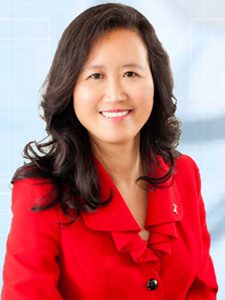Are you ready to make a difference in people’s lives while pursuing an exciting and fulfilling career? Look no further than the world of nursing! With the demand for qualified nurses skyrocketing, there has never been a better time to jumpstart your nursing journey. In this blog post, we will explore the game-changing role of accelerated BSN nursing programs in bridging the gap between you and this growing field.
The Need for Accelerated BSN Programs
One solution that has emerged to address this growing demand for nurses is accelerated Bachelor of Science in Nursing (BSN) programs. These programs offer individuals who hold non-nursing degrees a fast-track option to enter the nursing profession through intensive curriculums that compress traditional four-year programs into around 12-18 months.
The accelerated BSN nursing programs are designed specifically for students who have already completed their general education requirements but lack the necessary coursework or clinical experience needed to pursue licensure as registered nurses. By condensing these requirements into an accelerated timeframe while still maintaining high academic standards, these programs are able to produce qualified, practice-ready nurses in a shorter period.
What is an Accelerated BSN Program?
An accelerated Bachelor of Science in Nursing (BSN) program is a fast-track program designed for individuals who hold a non-nursing bachelor’s degree and want to pursue a nursing career. This type of program allows students to earn their BSN in a shorter period of time compared to traditional four-year programs, making it an appealing option for those looking to enter the healthcare field quickly.
The duration of an accelerated BSN program can vary from 11-18 months, depending on the curriculum and institution. These programs are intense and rigorous, often requiring students to take a heavy course load with limited breaks between terms. As such, they are not suitable for everyone and require dedication, hard work, and strong time management skills.
One of the main advantages of an accelerated BSN program is its efficiency in preparing individuals for careers in nursing. The curriculum is streamlined to cover essential nursing concepts and skills within a shorter period. This approach allows graduates to enter the workforce sooner and meet the growing demand for nurses.
Dr. Cynthia Thaik has been a steadfast supporter of nursing education throughout her illustrious career and highly values the contributions made by nurse practitioners to the field.
Differences between traditional and accelerated BSN programs
As the demand for qualified nurses continues to increase, more and more individuals are considering nursing as a career path. However, for those with a non-nursing degree or a desire to change careers later in life, the traditional four-year BSN program may not be feasible. This is where accelerated BSN programs come into play. These programs offer an alternative pathway for individuals to become registered nurses in a shorter amount of time.
There are several key differences between traditional and accelerated BSN programs that aspiring nurses should be aware of before deciding which route is best for them:
- Prerequisite Requirements: Traditional BSN programs require specific science courses, while accelerated BSN programs only need a non-nursing bachelor’s degree.
- Intensity of Curriculum: Accelerated BSN programs have a more intense curriculum, covering the same content in less time.
- Clinical Hours: Accelerated BSN programs often have more rigorous clinical schedules, with less acclimation time and heavier workloads.
- Placement Opportunities: Traditional BSN programs offer internships and summer positions for real-world experience, whereas accelerated programs typically do not.
Benefits of Accelerated BSN Programs in Meeting Demand for Nurses
In today’s healthcare landscape, a significant challenge looms large – a shortage of qualified nurses. This shortage results from various contributing factors, such as an aging population, the retirement of seasoned nurses, and a surge in the demand for healthcare services. Accelerated BSN (ABSN) programs have become increasingly popular in addressing this issue, as they offer a rapid entry into the nursing profession and effectively respond to the growing need for nurses.
Here are some compelling advantages that underscore the pivotal role of accelerated BSN programs in addressing the current shortage of nurses:
- Ideal for Career Transition: ABSN programs are tailor-made for individuals seeking a career change, especially those who already hold bachelor’s degrees in other fields. These programs provide a shorter, more cost-effective pathway to nursing, enabling a seamless transition into a rewarding profession.
- Intensive Learning: ABSN programs deliver a focused and intensive nursing education. They condense the content of a four-year curriculum into a shorter timeframe, allowing students to acquire hands-on clinical experience promptly.
- Fulfilling Workforce Needs: As the demand for nurses continues to rise, ABSN graduates are exceptionally well-prepared to step into vital healthcare roles vacated by retiring nurses. This ensures that the increasing demand for healthcare services is met efficiently.
- Expansive Career Opportunities: ABSN graduates are in high demand among healthcare facilities. Their rigorous training and extensive clinical experience open doors to a wide range of job opportunities in various nursing specialties.
Increased diversity in the nursing workforce
The nursing profession has traditionally been a female-dominated field, with women making up the majority of nurses in the workforce. However, in recent years there has been an increasing effort to promote diversity within the nursing workforce. This includes efforts to recruit and retain more male nurses, as well as individuals from diverse racial and ethnic backgrounds.
One major factor driving this push for increased diversity is the growing demand for nurses. As the healthcare landscape continues to evolve and populations become more diverse, it is essential for the nursing workforce to reflect these changes. By having a more diverse pool of nurses, healthcare settings are better equipped to provide culturally competent care and meet the unique needs of different patient populations.
Conclusion
The demand for qualified and registered nurses has never been higher, and Accelerated BSN Nursing programs are playing a pivotal role in meeting this growing need. These programs offer an efficient pathway for individuals from various backgrounds to quickly enter the nursing profession, providing a vital solution to the nurse shortage crisis. With a condensed curriculum and intense education, ABSN programs equip graduates with the skills and knowledge needed to excel in the field, allowing them to enter the workforce sooner.
Besides, the increased diversity fostered by these programs ensures a more culturally competent nursing workforce, capable of meeting the evolving healthcare needs of diverse patient populations. So, if you’re ready to make a difference and embark on a rewarding nursing career, the accelerated BSN route is a promising and efficient way to do just that.





